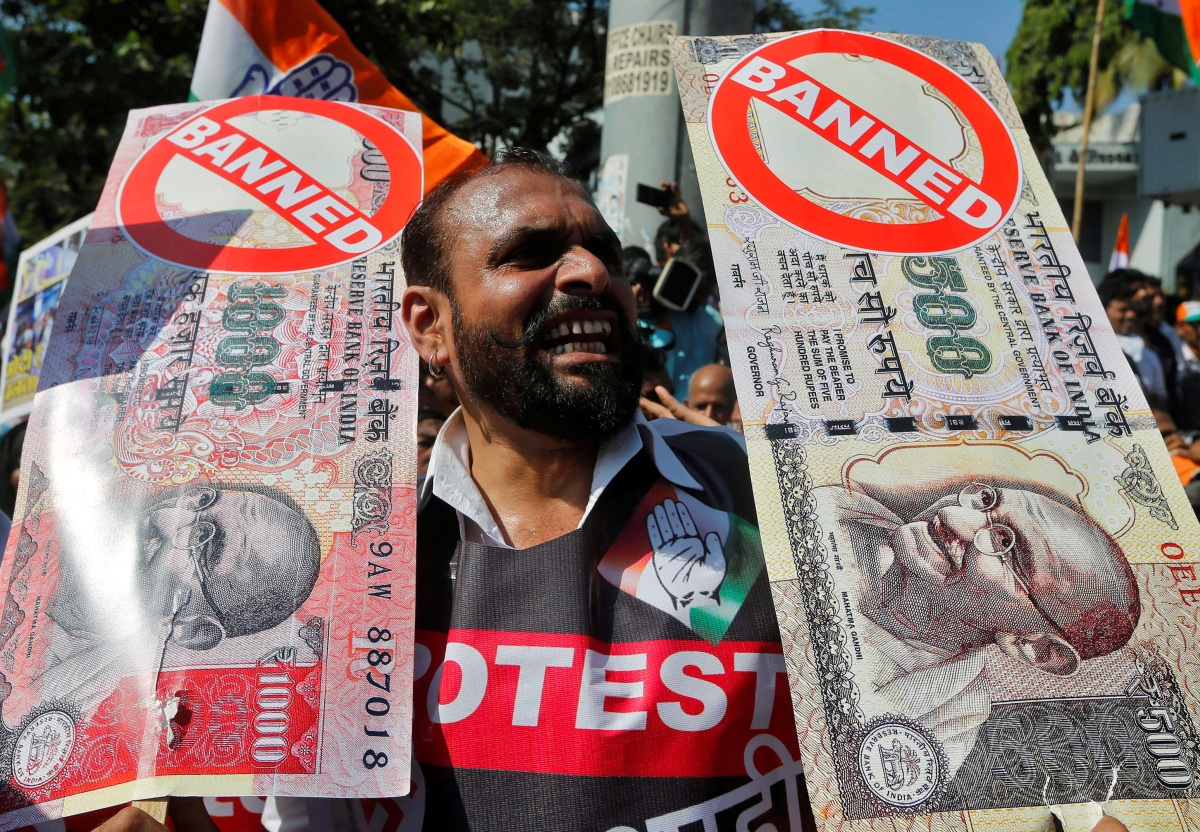Fake currency and black money like Jarasandha: Govt to SC on DeMo challenge
December 05, 2022 21:29

Fake currency, terror financing and black money are three evils and are like 'Jarasandha' (an antagonist in Mahabharat) and should be cut into pieces, the Centre told the Supreme Court on Monday while opposing the pleas challenging the 2016 demonetisation exercise.
Attorney General R Venkataramani, appearing for the Centre, submitted before a five-judge Constitution bench headed by Justice S A Nazeer that the government is duty bound to address the three evils.
"They (petitioners) have said we should have conducted studies before demonetisation. For more than a decade, central government and the Reserve Bank of India have been looking at the three problems (fake currency, terror financing, black money)... They are like Jarasandha. You have to cut it into pieces. If you don't cut it into pieces, it will always be alive," he said.
Venkataramani said judicial review of an economic policy may be restricted to where the court may only determine if there is a rational nexus with the object sought to be achieved through the means.
"Any other test would impinge on the freedom of legislature. Should the government keep aside all its considerations and only look at evils sought to be curtailed. The balance will be the real test," Venkataramani told the bench, also comprising Justices B R Gavai, A S Bopanna, V Ramasubramanian, and B V Nagarathna.
The AG submitted that an argument has been raised that the notification on demonetisation has failed to achieve the objectives.
"This is not a ground on which a law will be struck down. Every minute of governance sets targets. Even the five-year plan has targets. Over a period of time, some targets are met while some are not. Does the target become bad only for this reason? he said.
The top law officer stated that executive policy are given effect with goals and this does not preclude the possibility that some objectives may not be achieved to the fullest or there may be something left to be desired in their implementation.
"This does not, however, mean that the policy is per se bad or that it deserves to be struck down. In such a case, it is the action under the law rather than the law itself which can be held invalid. There is presumption that unless proven otherwise the execution of the law is being done in a fair manner. It has been held that as long the trial and error is bona fide and with best intention, such decisions cannot be questioned as illegal," Venkataramani said.
Resisting the Supreme Court's attempt to revisit the 2016 demonetisation exercise, the government had said on Friday that the court cannot decide a matter when no tangible relief can be granted by way of "putting the clock back" and "unscrambling a scrambled egg".
The remarks by the AG had come after the apex court asked the Union government to explain whether it consulted the Central Board of Reserve Bank of India (RBI) before undertaking the scrapping of Rs 500 and Rs 1,000 denomination notes in 2016.
The Constitution bench is hearing a batch of 58 petitions challenging the demonetisation exercise.





 © 2024 Rediff.com -
© 2024 Rediff.com -